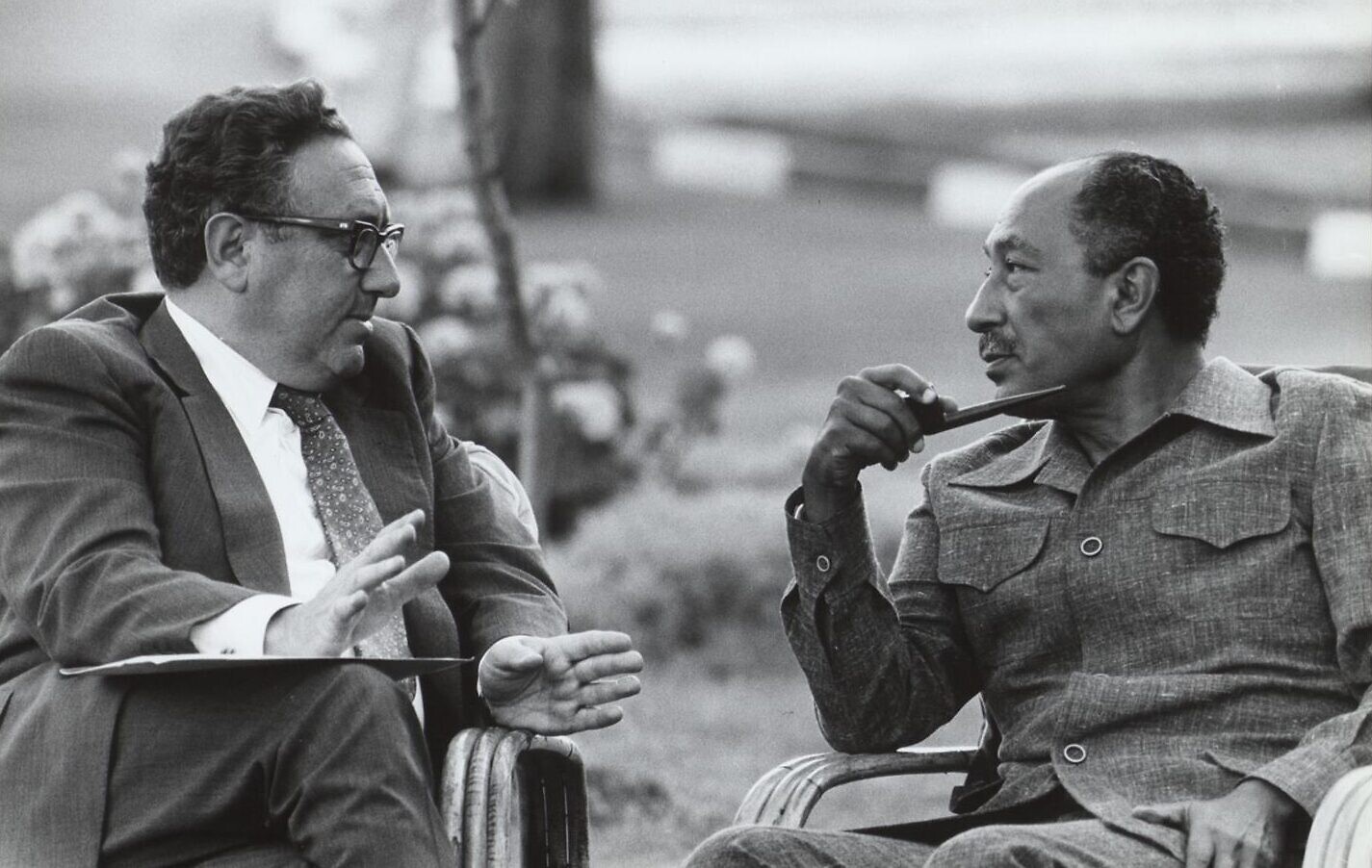It was an emblematic moment in contemporary Egyptian history, as President Anwar al-Sadat presided over victory in the 1973 Arab-Israeli War. Sadat became an iconic figure, now bestowed the title batal al-ubur (“the Hero of the Crossing”); he awoke a reinvigorated sense of duty and togetherness that had for years began to dissipate.
Sadat’s military victory had restored national pride, however, public expectations as to the state of Egypt’s languishing domestic economy started to emerge. No longer could the war effort be considered a valid excuse for the economic ills suffered by all segments of Egyptian society.
During the 1960s, Gamal Abd El-Nasser, in an effort to emulate the Soviet Union, had created a huge public sector and an over-regulated state economy. All essential food commodities and large infrastructure investment projects were controlled and centralised, this amounted to widespread shortages and waste. The economy was characterised by low levels of productivity, a lack of an educated workforce and a decaying agricultural sector.
Nasser was able to sustain this economic structure through increased levels of taxation, and through printing more money to fund public spending, known as financing by deficit.
However, Nasser’s defeat in the 1967 Arab-Israeli War further exacerbated the issue, incurring “colossal military and economic losses” that would require an extraordinary feat to improve. Sadat had inherited a political and economic system in dire need of salvation.
Sadat’s answer was al infitah – or the opening – an open door policy of economic liberalisation that would encourage foreign investments, and strengthen private sector growth. These policies would coincide with a degree of political easing and democratisation, although never enough to threaten Sadat’s grip on power.
Sadat began to court the U.S. and Gulf States, signalling a rapid shift in regional alliances and the rejection of close ties with the Soviet Union. The infitah policies strengthened ties with Western leaders, ushering in a new age of liberalisation.
Egypt secured “the largest U.S. economic aid program in the world”, and began to undergo a series of reforms to enhance productivity and attract foreign investments. Until today, Egypt remains one of the top recipients of U.S. financial assistance racking in more than USD 81 billion (EGP 1.4 trillion) in bilateral foreign aid between 1946 and 2020.
Sadat encouraged the adoption of new investment regulations. According to “The Experience of Foreign Investment Under Infitah” by Hadi Salehi Esfahani, these regulations “provided incentives and included a promise to refrain from nationalisation and the confiscation of invested capital except by judicial procedures.”
The economy showed promising signs of growth as “the GDP rate rose from 8 to 10 percent per annum through the 1970s and the balance of payments moved favourably.” Remittances increased from nothing in 1971 to over USD 2.2 billion (EGP 40.4 billion) in 1979, according to the World Bank, forming approximately 12 percent of Egypt’s GDP.
The International Monetary Fund (IMF) and World Bank began to encourage major cuts to government spending, and an end to subsidies for basic food commodities which was regarded as a major cause of persistent budget deficits.
Sadat’s announcement of the price hikes would spark unrest, and provoke massive riots across the country – in what later became known as Intifadet Al-Khobz – or the Bread Intifada.
Although public rage had forced Sadat to reinstate food subsidies, clashes between the army and rioters had resulted in 800 injuries, 80 deaths and over 1000 imprisonments. The chaos of the Bread Intifada had brought to light the many shortcomings of Sadat’s open door economic policies, especially its inability to deliver prosperity and stability to the Egyptian working classes, slowly signalling the rapid decline of his presidency.
Infitah policies became overly ambitious, failing to recognise the complexities of Egypt’s socio-economic structure, it was moving at an unrealistic pace that was destined to fail the very people it set out to serve.
Over four decades later, Cairo seems to be following a similar economic trajectory.
An over-reliance on debt-funded growth, and poorly targeted government subsidies have brought about harsh economic conditions upon Egypt’s lower and middle classes. Cairo has continued to neglect serious structural economic reforms that would help foster growth, rather current policies are triggering insecurity as those of Sadat decades before.







Comments (4)
[…] Anwar al-Sadat’s Open-Door Economic Policy (ODEP) helped and encouraged the importation of the necessary […]
[…] hikes and crushing austerity measures resulting from Sadat’s liberal economic policies strained Egypt’s working classes, and added more fuel to […]